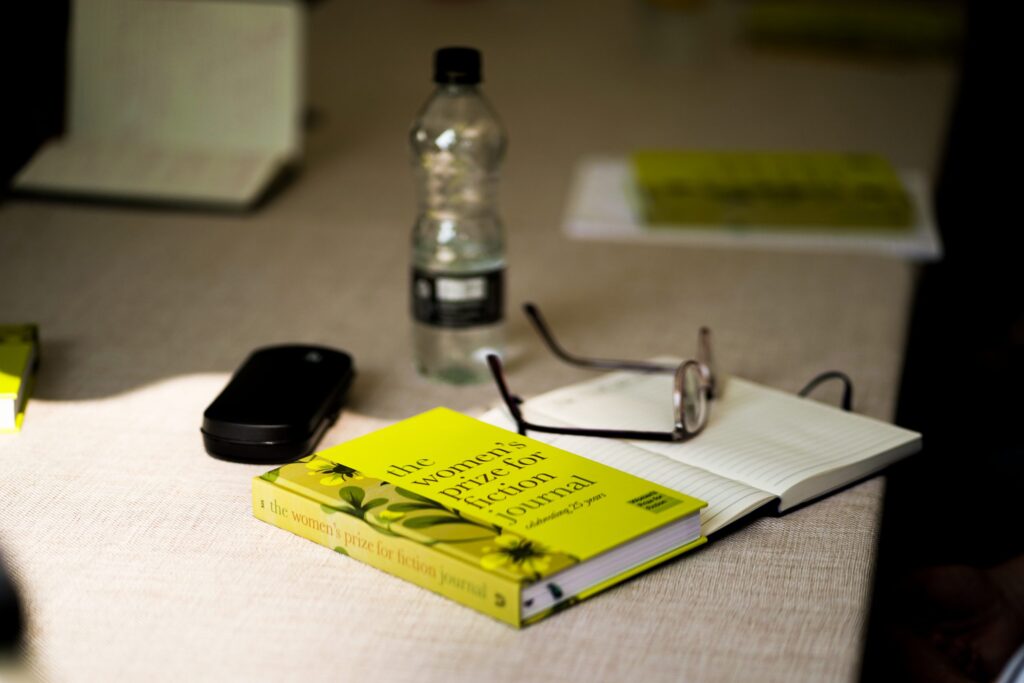Discoveries is more than a traditional prize whereby the winner receives an offer of representation and £5000; it is a pioneering development initiative which offers practical support and encouragement to aspiring female novelists of all ages and backgrounds, from across the UK and Ireland.
The Women’s Prize Discoveries writing development programme is delivered in partnership with Audible, Curtis Brown Literary Agency, and the Curtis Brown Creative writing school.
Discoveries invites unpublished women writers from the UK or Ireland to submit the opening of a novel in English, of up to 10,000 words. Unlike most initiatives of this kind, writers are not required to have finished their novel, and Discoveries is completely free to enter. Our judges are looking for “originality and imagination”, and “potential, not polish.”
To get you started, here’s some advice on how to perfect your submission to Discoveries, courtesy of Curtis Brown Creative:
OPENING
The openings of books are incredibly important, a good opening will hook your reader and compel them to keep turning pages.
Make your opening really strong by:
Getting quickly into your story. Writers often make the mistake of spending a lot of time on scene-setting or introducing characters one by one with lots of information about their personal histories before they actually start the real action of the story. Move straight into the action to engage the reader fully.
Don’t open with clichés. We’d love to see something fresh, new and intriguing. At all costs avoid openings with people waking up in the morning, characters staggering around with hangovers or long passages about the weather or rather generic landscape. Give us something to hook us in immediately – something which makes the reader curious or establishes a mystery which must be solved.
But … Openings don’t need to be explosive. An unusual exchange between characters can be as dramatic as a man bursting into a room with a gun. Your opening should set the tone for the novel which follows it.
Establish the necessary context quickly. We need to know, rapidly, where we are as readers. If your novel is set in the past, drop some clues very early as to when the action takes place. If your story is told by a child, let us know fast how old your narrator is. Help us to settle quickly into your story so that we can lose ourselves in it…
Read over your material on the page before you send it in. Yes, we do think it’s a good idea to print out your material on the page – old-style – and sit with a pen in your hand to make edits before you enter the competition. It’s also a good idea to read your work out loud to yourself to see how it sounds – particularly when you have lots of dialogue.
SYNOPSIS
We do know, of course, that it’s hard to write a great synopsis before you’ve finished writing your novel. But give it your best shot. We’d like to see one good page (up to 1,000 words but do keep it a bit shorter than that if you can – around 500 words should be adequate) to show us where your story is headed. Here are our tips:
One-line pitch. Start with a sentence which tells us what’s really at the heart of your story – this is, essentially, your one-line pitch. If that’s impossible for the kind of book you’re writing, head your synopsis up with a line from your novel which carries some of its flavour.
Give us the broad strokes of your story. we want to know the through-line of your plot. Try to be clear and concise, and don’t drop in lots and lots of character names, settings and minor events. If you have a twist in the tale, it’s up to you as to whether you want to include that in the synopsis, but we should certainly get the arc of your story.
If possible (and without being too corny about it) try to get some of the tone of your novel into your synopsis so that it reads entertainingly and not like a characterless business document.
Remember – this is an overview of your novel, not a detailed plan. We don’t need full chapter-breakdowns – just the key points of your story.
Avoid putting in any value judgements about your own work. This isn’t a blurb on a published novel. Don’t tell us it’s going to be the next bestseller or that it’s gripping and moving etc. Frankly, we’ll be the judge of that!
TITLE
Finally, make sure that you give your novel a title. It doesn’t matter if you change it later – it’s still better to have a working title than none at all. A title gives your book an identity. It will also make it much easier for the readers and judges to talk about it. Otherwise we end up having conversations like this:
“I really like the one where the girl goes missing.”
“You mean the one where the girl goes missing on her way to school?”
“No, not that one. The one where …”
See what we mean?
FORMAT
We’d love it if you could format your work so that it looks professional and is pleasant for us to read. This is how we’d like you to do it:
Remember to proofread. Check your spelling, grammar and punctuation.
Make sure you include paragraph breaks and set your dialogue out correctly with a new line for each new speaker – all of this makes your material easier to read by our judges.
Check that your word count does not exceed 10,000 words.
Best of luck preparing your submission to Discoveries. We’re so excited to read your work!
To keep updated with news about all things Women’s Prize and to be the first to hear Discoveries news, sign up to our newsletter here.








